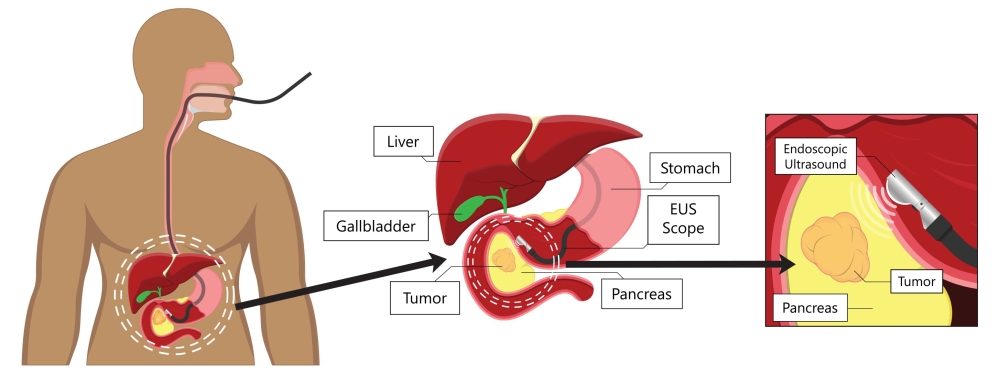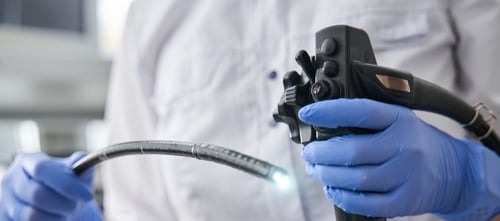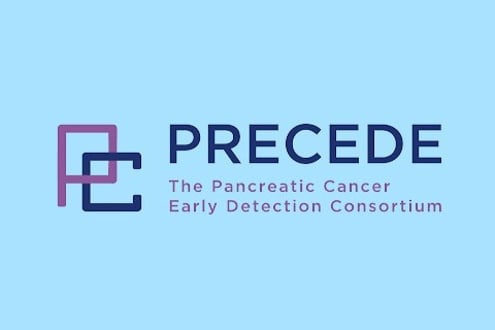Pancreatic Cancer: Types of Screening
Types of Pancreatic Cancer Screening
There are two main types of screening used to try to find pancreatic cancer at an earlier and treatable .
- Contrast-enhanced magnetic resonance cholangiopancreatography (MRCP) is a special type of imaging that looks closely at the pancreas, liver, gallbladder, bile duct and pancreatic duct to find abnormalities such as cancer. People undergoing MRCP must fast for four hours before the procedure. An injection of contrast agent—called gadolinium—is given before the test in order to help radiologists to find abnormalities more easily.
- Endoscopic (EUS) involves passing a tiny scope with an attached probe down the esophagus to the stomach. This allows doctors to look closely at the pancreas. EUS is performed as an outpatient procedure under anesthesia.

Endoscopic procedure to look for pancreatic tumors
More Resources

PRECEDE Pancreatic Cancer Early Detection Consortium
The PRECEDE Consortium is a collaboration of experts working to improve detection and prevention of hereditary pancreatic cancer.
NCCN Patient Guidelines for Pancreatic Cancer
The National Comprehensive Cancer Network has patient guidelines to help people diagnosed with pancreatic cancer make informed decisions.
Let's Win! Pancreatic Cancer
FORCE partner, Let's Win is a go-to guide with easy-to-understand, actionable content focused on the needs of the patient and caregiver.Participate in Research

Pancreatic Cancer Screening Study (CAPS5)
Clinicaltrials.gov identifier: NCT02000089

Pancreatic Cancer Early Detection for People at High Risk
Clinicaltrials.gov identifier: NCT04970056

Blood Markers of Early Pancreas Cancer
Clinicaltrials.gov identifier: NCT03568630

Pancreatic Cancer Screening Study for High Risk People
Clinicaltrials.gov identifier: NCT03250078